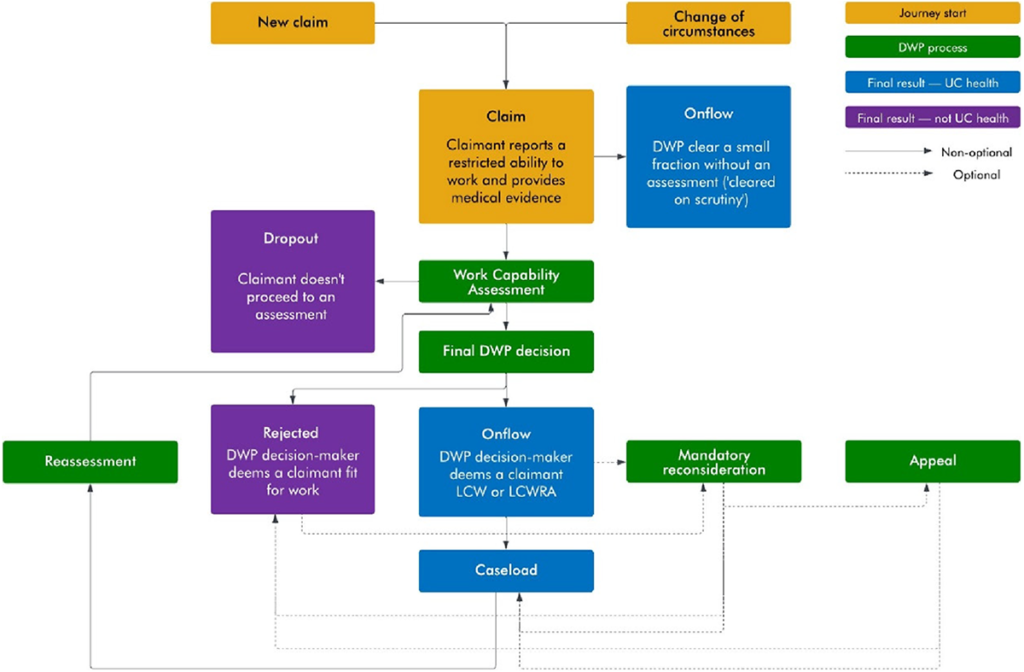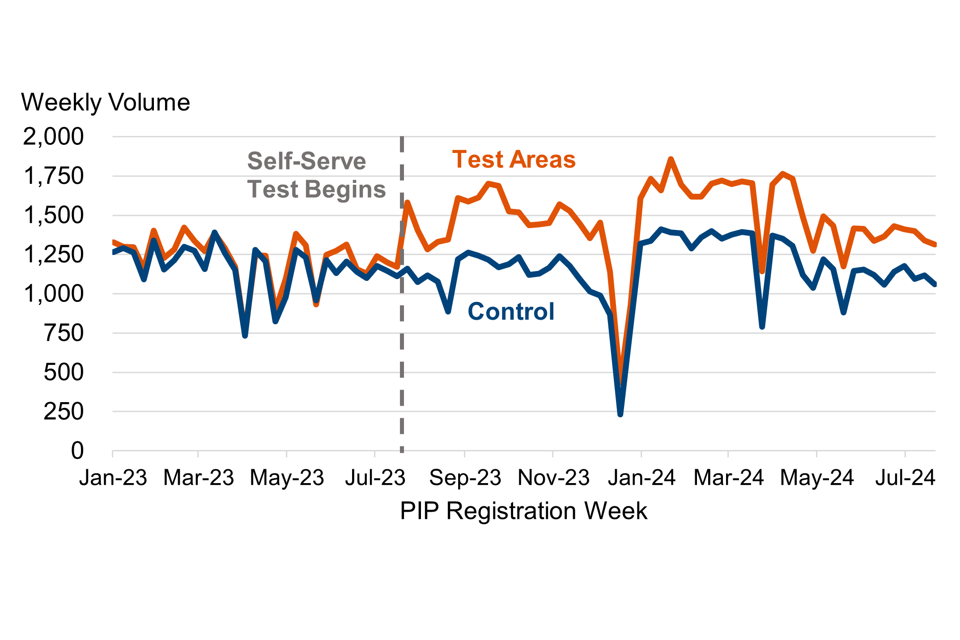New PIP Reforms May Impact Older People’s Benefits: The UK government’s recent reforms to Personal Independence Payments (PIP) are stirring a lot of buzz. These changes are set to affect older individuals, especially those who depend on the support provided by PIP and Universal Credit (UC). But what exactly is changing, and how will this impact older people’s benefits? If you’ve been following the news, you might already know that these reforms are causing significant concern. People are worried about losing vital financial support, particularly the benefits that help cover daily living costs for those with disabilities or long-term health conditions. In this article, we will break down the key changes, what they mean for older claimants, and offer some practical advice for anyone affected.
New PIP Reforms May Impact Older People’s Benefits
The UK government’s new reforms to PIP and Universal Credit may have serious consequences for older individuals and their families. These changes are set to tighten eligibility and reduce support for many claimants, which could lead to financial hardship and emotional strain. If you’re affected, it’s essential to stay informed, seek advice, and explore other avenues of financial support. By staying proactive and utilizing available resources, you can better navigate these changes and ensure that you’re still receiving the help you need. Remember, there’s always help available—whether through local advice centers, support groups, or government channels.

| Key Change | Impact on Older People | Affected Groups | Reference |
|---|---|---|---|
| Stricter Eligibility for PIP | Older individuals (especially 60-64) who don’t meet the stricter criteria could lose daily living payments. | Claimants, carers | Citizens Advice |
| Carer’s Allowance at Risk | Over 150,000 carers may lose their Carer’s Allowance if the individuals they care for lose eligibility. | Family carers | |
| Universal Credit (UC) Changes | The health element of UC will be frozen at £97 until 2029 for current claimants, and reduced for new claimants. | Claimants under 65 | Benefits and Work |
Context: What Are PIP and UC?
Personal Independence Payment (PIP) is a benefit for people with long-term health conditions or disabilities, helping them with the extra costs they face due to their condition. It’s a crucial support for those who struggle with daily tasks like cooking, dressing, or managing their health.
On the other hand, Universal Credit (UC) is a welfare benefit designed to help people with low income or who are unable to work due to health issues. The health element of UC provides additional financial support to those with a disability or health condition that affects their ability to work.
These programs were meant to be lifelines for people in need, especially those who couldn’t work or were nearing retirement. But now, changes are coming that will affect many older individuals who rely on these benefits.

What New PIP Reforms May Impact Older People’s Benefits?
Let’s break it down: there are two major areas of change in the new PIP reforms:
1. Stricter Eligibility Criteria for PIP
As of November 2026, there will be tougher eligibility rules for receiving the daily living component of PIP. This means that people will have to meet stricter criteria, which could affect many older people who currently rely on PIP.
To qualify, claimants will need to score at least 4 points in one of the daily living activities (e.g., preparing food, washing, dressing), in addition to the existing requirement of 8 points across all activities. This could cause problems for older individuals whose conditions aren’t severe enough to score 4 points in one activity but might meet the criteria across multiple ones.
This change is expected to impact around 800,000 claimants, with many of them being older individuals, particularly those aged 60-64. For instance, a person with mobility issues or a chronic condition might find themselves ineligible under these new rules.
2. Carer’s Allowance Could Be Lost
Another group that will feel the pain is carers. Carers who look after individuals receiving PIP could lose their Carer’s Allowance if the person they care for becomes ineligible due to these changes. Over 150,000 carers are expected to be affected.
While the government has promised a 13-week grace period for these carers, many still worry that this won’t be enough to cushion the financial blow, especially if the person they care for becomes permanently ineligible for PIP.
What’s Happening with Universal Credit (UC)?
UC is also undergoing changes that will impact older claimants:
- The health element of UC, which currently provides additional support for individuals with disabilities or health conditions, will be frozen at £97 per week for existing claimants. For new claimants starting in April 2026, the amount will be reduced to £50 per week.
- Access to this health element will also be delayed until claimants reach the age of 22, which means younger people struggling with disabilities will have to wait longer to receive support.
This freezing and reduction in the health element are expected to affect younger claimants, but older individuals who are not yet at the State Pension age (usually 65) will still feel the impact. They may find themselves struggling with a lower income and fewer benefits as a result.

Who Will Be Affected?
Older People (Under State Pension Age)
The new PIP reforms will predominantly affect people aged 60-64, especially those who aren’t yet receiving their State Pension. This group tends to be heavily reliant on PIP to cover everyday expenses, from mobility aids to help around the house.
People in this age group account for about 304,000 of the current PIP claimants, so many will be left in a precarious financial position if they no longer meet the criteria.
Carers of Older Claimants
Another group at risk of being affected are family carers. These individuals might lose their Carer’s Allowance if their loved one no longer qualifies for PIP under the new rules. The additional support that family carers receive is vital, as it helps them provide essential care to loved ones.
For example, a son or daughter caring for an elderly parent with a long-term illness may rely on the Carer’s Allowance to help offset the costs of caregiving, including lost income from having to reduce working hours.
People with Long-Term Health Conditions
Older individuals with chronic health conditions that don’t qualify as a disability could also face serious consequences. Many may no longer meet the criteria to qualify for PIP or may find that their Universal Credit health element is reduced.
For example, someone with a heart condition or a severe back problem who struggles to work or perform daily activities might no longer receive the help they once did.
Additional Support Options for Affected Individuals
If you or someone you know is affected by these changes, it’s important to explore additional support options. Here are a few avenues worth looking into:
- Local Council Assistance: Many local councils offer discretionary grants and payments for those facing hardship. These can help cover the cost of utilities, food, or even mobility aids.
- Charity Support: Organizations like Turn2Us or The Trussell Trust offer financial help, food, and other support for individuals in crisis.
- Reassess Your PIP: If you feel that your PIP assessment doesn’t accurately reflect your needs, you can ask for a reassessment or appeal the decision.
- Universal Credit Adjustments: If you’re affected by the reduction in UC health element, you may qualify for other support, like disability premiums.

Impact on the Healthcare System
The PIP and UC reforms won’t just affect individuals—they may also strain the healthcare system. As more people face financial hardship, many will struggle to access necessary healthcare services. With a reduced income, older individuals might delay medical appointments, avoid prescriptions, or forgo treatments they need to maintain their health. This can lead to worse health outcomes and more severe conditions in the long run.
Long-Term Consequences for the Welfare System
These reforms may signal a shift in the way the UK welfare system operates in the long term. With increasing demand for support services, cutting or reducing benefits could increase the burden on local services, healthcare providers, and charities. This could cause a ripple effect, impacting everything from mental health services to housing and education.
Government’s Justification for the Changes
The government argues that these changes will encourage self-sufficiency and reduce dependency on welfare. By tightening eligibility criteria and focusing resources on those most in need, they claim they can create a more sustainable welfare system. However, critics argue that these changes could lead to worsened financial insecurity, particularly among older individuals, who may struggle to work or find alternative sources of income.
DWP Confirms July Payout Dates for PIP, Pension, and Cost of Living Benefits
PIP £5285 Boost for Seniors – Who’s Eligible and When Will It Be Paid?
Struggling to Get Your PIP Approved? This New Tool Could Finally Make It Happen











